By Faisal Roble
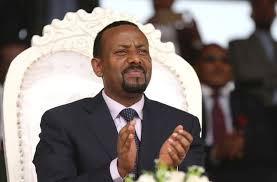
With the coming of Dr. Abiy Ahmed to power in April 2018, the political scene of Ethiopia has changed, or so it seemed at first glance. Overthrowing TPLF bloodlessly itself is a miracle. However much one celebrates Dr. Abiy’s promise to have brought Ethiopia back from the brink, his ability to divorce that country from the ghost of TPLF is less certain. At least, the TPLF ghost has reincarnated in the Somali region. If Bethlehem is the birthplace of Jesus Christ, Jigjiga is the closest place to qualify for the reincarnation of the ghost of TPLF.
Using his preacher’s skills, Dr. Abiy has instantly earned the admiration and support of millions of Ethiopians for his ecumenical promises to engender a complete revolution. Alas, the Abiy revolution has stagnated in some areas, and certainly has failed in the Somali region for the simple reason that the local administration looks like more of a TPLF apparatus than a new system of governance.
In general, non-substantive changes in Sub-Sahara Africa are often welcomed, simply because people are desperate for a live-altering change. In the case of Ethiopia, the threshold to evaluate change is so low that often both so-called revolutions and their leaders are often uncritically accepted by the masses. Then follows suit extreme power abuse.
Dr. Abiy has exploited that low threshold. With no substantive change in the body politic of the country, the society gave him a seal of approval, mainly for ending the curfew, releasing political prisoners, making peace with Eritrea, and declaring ceasefire with multiple rebel groups. But these steps are nothing more than a step in the right direction. Despite the Ogaden National Liberation Front disarming itself, and ceding all its fighters to the government, as the regional president said in a recent ceremony in Jigjiga, the seal of approval for Dr. Abiy’s revolution in the Somali region is already showing cracks, as the case has been with previous promising changes in the past. Whether things will further deteriorate is a thing in the future.
Promises Broken and Healthy Skepticism
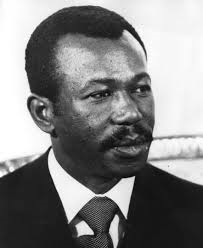
I was an idealistic high school kid when Mengistu Haile Mariam took power in 1974. People did not know what to make of him. But they all agreed he was a
charismatic leader. Coming from the rank and file of the Harar and Jigjiga stationed powerful mechanized 3rd Division, he had less inhibitions about royalty and more down-trodden guts to dare the powerful. It was that low-class quality that earned him the respect of many youngster in the center.
More and more people admired him initially for his “great speech” at Chan Meda, now Red Square, or Qayi Masqal. Chan Meda was the first place where people saw the maverick and hitherto reclusive junior captain from Jigjiga and Harar. In his speech he decidedly accommodated ideas for which the progressives fought.
The words of “Ethiopia Tiqdam iska Maqaabir dhiras,” or “Ethiopia first even if we have to go to grave for it” reverberated well with the young and the change-seekers. Followed by his “land to the tillers, rural campaign (Zamacha), and nationalization of the productive sectors of the economy appealed to the youth and the idealist. But that positive impression did not last long.
What followed was one of the worst purges in history. Thousands of high school kids, university revolutionaries and trade union members have perished. A good account of the mayhem Mengistu committed was methodically narrated by Dan Connell in an article he wrote for the Horn of Africa Journal in 1978. Mr. Connell gives a gore account of the type of purges and underground live by students and members of EPRP, and the architecture of the infamous red terror that spanned between 1977 and 1978.
The killings of about 60 Prisoners right after Mengistu and his Dergi junta clutched in power is still fresh in my memory. I still vividly recall what I was doing on that fateful day of November 23, 1974. I went to my regular restaurant for breakfast that often consisted of lamb liver, French bread, and sweet Somali tea. Upon entering Abdulahi Taganghn’s restaurant (Abdullahi Taganghn, or the Abdullahi who was found was a Walayta convert to Islam who became through time a Somali whose business and life thrived in his adopted land), I was hit in the face by the marching military music broadcasted over the radio.
Instantly Hashi, a chubby waiter of about 24, approached my table. “What are all these commotions” I asked.
“Did you not hear it?” he asked in a bewilderment placing my usual order in a sequence of tea first, followed by the liver dish, and French bread at last.
“No, I did not,” I replied still eying hungrily my food steaming right in front of me.
“The crazy guy passed a national proclamation and passed a verdict over the execution of 60 imprisoned officers who were held at Karchle prison.”
Before he proceeded, a second round of announcement came on the radio. I attentively listened and the names of the prisoners were read one by one! they were the “who is who” of Ethiopia’s ministers, generals, members of the elite. Sixty of them! It was one of a kind, never heard before or thereafter (the 60 included 2 Prime Ministers, more than 20 generals, more than 15 with honorary titles like Dejazmach, and several colonels).
One General stood up for me and that was Lt. General Yilma Shibashi, who was my Grand uncle’s friend.
My Grand uncle, Ahmed Yasin Heban loved Lt. General Yilma Shibashi as his mentor. With the help of General Yilma, Mr. Heban rose in the ranks of national police force and served as the senior police commander in Dambidola and Nekemti, located in Welega. Mr. Heban in his retirement lost faith in the system and often retort the words of “Inquan Yilma Shibasim gadalaju,” or “you even killed Yilma Shibashi” to emphasize the cruelty of the Dergi, and the “end of Ethiopia face that he knew well.
That morning was the eeriest moment that I would ever see since. In one scoop, the government of Ethiopia murdered 60 of the best and the brightest without habeas corpus. Thus, came my undying skepticism about African revolutions. I simply don’t trust change so easily.
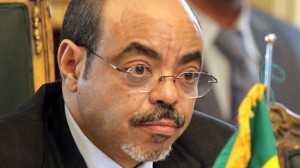
Then came the TPLF “revolution,” in 1991. All but only some unionists welcomed it without reservations. I was from the get-go one of those rare Somali skeptics from the peripheries and approached TPLF rhetoric with a healthy dose of reservation.
Right away, Meles became a turnoff to me when he mistreated Somalis. I lost faith in him when I saw in him an element of Mengistu early one, especially after I listened to one of his earliest interviews; he gave an unsettling interview to Sayyid Khalifa of Sudan right after the first parliament was put together. A veteran journalist, Sayyid Khalif inquired about the small share of four seats given to the Somalis who fought Mengistu more than any other group.
Meles’ answer was that Somalis cannot administer for they are nomads (I wrote an article then in 1991). How this experience with Meles compares to Abiy’s utter disregard of Somalis when he put together both the boundary and reconciliation commissions to the exclusion of Somalis, except one member in each commission of 41 members, is a subject of immense interest to Somalis.
However, Meles used Somalis as a token “model minority” to benefit from a phantom “Article 39” more than other ethnic groups; he did so without ever ceding or availing any form of real political and economic muscle to them. Nonetheless, he marveled all Somalis no matter where they are from; I still wonder why did they buy his empty rhetoric? He did all this while stealing their wealth and their political representation within the federal scheme, plus humiliating them.
As history later would show, more Somali civilians in the Ogaden regions of Wardheer, Qorahay, and Jarar have been leveled to the ground. He also destroyed Mogadishu by serving America’s “war on terror” as their stooge in the Horn of Africa.
As a contributing editor of the Ethiopian Review (1992-1998), I wrote critical essays, which often earned me the scorn of multiple feeble governments in Jigjiga. In my last two trips to Ethiopia (2006 and 2014), I had to only go as far as Addis Ababa and never ventured to go down to Jigjiga. As a punishment, thought, the now-imprisoned former local henchman, Abdi Mahomed Omar (CMC), confiscated my family’s property illegally. Without any crime, I was deprived of the simple pleasure to visit my late father’s grave or spend time with two of my siblings who are still there.
As much as Haile Marian Desalaign was, in the words of Terrence Lyons, “not a token but a transitional leader,” he did not capture any traction with Ethiopians. But he shared one common trait with Meles – Somalis have been massacred during his administration and he kept silent. Despite that delay is death, he nonetheless finally apologized and asked for forgiveness for the Somalis killed in Oromia during his tenure. It is never late to contrite and apologize. Reconciliation begins with contrite and a sincere apology; so, the former PM did it with class.
Reincarnation of TPLF Ghost in Jigjiga
The coming of Dr. Abiy Ahmed, in April 2018, was significantly different. Unlike his predecessors, he instantly captured the admiration and appreciations of almost
Ethiopia’s 105 million residents. He was successful in articulating a concept called “medemer,” or add-up, implying that we have to be one large family – an idea akin to America’s unity-based motto of “E Pluribus Unum.” As usual, Somalis uncritically jumped the bandwagon and even sung for the new Nugus louder than any other group.
In getting his point across, Dr. Abiy preaches like a Black American priest – Most of what he says is not relevant or practical public policies but ecumenical messages that soothes the aching hearts of millions of indigents; some even consider him as the coming of the second messiah, simply because he speaks to their pain.
In Ethiopia, when one side heals, another side must hurt; if one group wins, there shall be a losing and hurting counterpart. But, Dr. Abiy like a “messiah” promised that in his coming everybody will win. He promised to this country of 105 million-person ancient empire that TPLF was dead. In so many media outlets, the TPLF carcass and what is pejoratively called the “day-time-hyena,” (ya qan Jiib) was crucified.
However, skeptics like I found irresistibly repeating the Amharic phrase of “zor ale injii alshasham,” that it camouflaged itself but did not go away. If the names and personalities associated with TPLF have disappeared, its political machinations and intrigues are well and alive, at least in the Somali region.
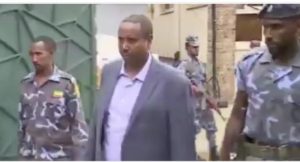
For the unsuspecting Ethiopian eye in the center, the removal of the former regional henchman, Abdi Mohamoud Omar, was done in total contravention of the existing constitutional framework. The pretext was a childish one and remains so -that he was a threat to the non-Somali residents of Jigjiga. But there lies the machination and intrigues Abiy and his revolutionaries learned from TPLF – utter fabrication of fake facts to promote an illegal political act. On the contrary, Abdi Mohamoud Omar was their “house nigger,” if any, and wanted to be liked so much by the neftegna in Jigjiga he empowered them. He reportedly allocated about 600,000 bir annually for the church in Jigjiga. With that in the background, the ploy to accuse Abdi Mohamoud Omar as someone out there to destroy the Christian community in Jigjiga is to say that the Bueutaleza of apartheid South Africa conspired against his apartheid white settlers. Such a childish ploy is a verse from the book of TPLF.
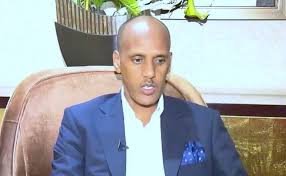
As if the was not enough of an insult to our intelligence, the Oromo elite, who became the new Nugus of the country, handpicked the current administrator of the region in a hasty decision. Mustafa Omar is by far more nuanced than Abdi Mohamed Omar; that is given. But he was chosen not because of his political
blueprint or executive [managerial] skills, or even his revolutionary credentials. Simply put, Jawer Mohamed and his inner circle parachuted him into the office. They did so not that they loved him more but that they loved CMC less – akin to Brutus’ murdering of Caesar, then declaring that “not that I loved Cesar less but that I loved Rome more.”
As far as we now, Mustafa has no political philosophy or executive experience in government administration. What most Somalis admire about him, though, is his tenacious attitude to have waged a fearless war of words, even if it was vitriolic, with the former President; he did so over his Facebook page (his younger brother was allegedly murdered by the former regional President). For that, he earned a lot of sympathy. Most of what they accused CMC were facts; but they also fabricated their own facts to satisfy the Jawer clique. It is those fabricated facts that are haunting him now, where propaganda to help achieve power does not match facts on the ground.
However, most Somalis openly now grumble about him being a weak and disheveled client regional administrator with his credibility waning by the day for two reasons:
1. As a viceroy handpicked by OPDO (now ODP), he has no agenda of his own when it comes to administering the region. Nor has he shown the discipline to follow governmental procedures thus plunging the region into an ever-widening crisis with no end in sight. Reports from Jigjiga are indicating that he is firing parliamentarians and civil servants without any due process and replacing them with inexperienced wonders from lands from afar. And that is creating unnecessary anarchy and making transition more difficult in this otherwise fragile region.
2. He remained silent on the incisive and non-stop killings of Somalis along Oromo-Somali boundary areas. To date, he kept silent over the death of innocent civilians in Tuliguuleed, Moyale, Babili, Sitti, and elsewhere. Neither did he produce a blueprint to arrest the crisis. As I draft this op-ed, there is an overnight bitter war between an invading Oromo militia and civilians in Tuliguuleed, which is only 20 KM to the north of his office. Thus far, he has hung on to what he calls “freedom of speech,” which is largely a relieve whose bell is ringing in the entire country.
To their delight, he and his ministers derive around this small and decrepit town expansive V8 SUVs in the dusty streets of Jigjiga and are thus far oblivious to their neighborhood. Alas, the late Saado Ali sung of the same situation where undeserving undereducated government officials vainly derive Land Cruiser SUVs in the face of starving indigents and the sound of bullets being heard inside his office. If they walked, they could have seen what is happening in their surrounding and in the way would have picked up healthy habits. After all, the city consists of only few blocks.
To the chagrin of many, President Mustafa’s blanket silence in the face of constant killings of hundreds of Somalis and the accompanying displacement of thousands is unsettling. The conflicts on the outskirts of Jigjiga, Babili, Sitti, and Moyale, a jaw-dropping and harrowing experience for thousands of Somalis, have also inadvertently made him irrelevant in the region’s safety and public welfare.
It is fitting to mention that while the former Prime Minister, Haile Mariam, has shown contrite and apologized for the killing of about less than one hundred Somalis in Oromia area during his tenure, President Mustafa has brushed aside the cause of hundreds being killed since he came to office. Instead, he is busy to perfect the following TPLF tools:
1. Making the regional government a viceroy to ODP and the military generals in the region, as CMC was to TPLF and Tigre generals. In the case of President Mustafa, they toy with him as they on-and-off give him mixed messages. Nonetheless, he remains in a servitude to ODP.
2. Arresting, intimidating, and harassing dissent voices at will is back. There is no month that passes by without mass arrests of one group or another. On 2/11/2019, for example, about 64 young adults have been arrested without any warrant or explanation. Prior to that, several young adults and elders were arrested. Even, women in the middle of their maternity have been sent to jail. A similar of such an arrest happened under Meles Zenawi in 2010 when a mother who gave birth only few days before was arrested because of an unfounded suspicion that her husband joined ONLF.
3. The worst TPLF tools President Mustafa has reinstituted is his proclivity and obsession to play one Somali clan against another. Reliable information coming from Jigjiga testifies that he encourages inter clan conflicts, when
necessary, and has perfected the art of “robbing Peter to pay Paul” in giving political positions and government contracts.
If the Getachaws of TPLF are dead in Addis Ababa, their ghost has reincarnated with venom in Jigjiga. Revolutions happen for a reason, often when oppression is no longer sustainable. However, revolutionaries could also be susceptible to corruption. The Abiy revolution is on the verge of being corrupted. The proof is in the pudding, and Jigjiga is in more than one way the center for the reincarnation of the ghost of TPLF.
By FaisalAbdi Roble
Email: [email protected]
———–
Faisal Roble, a writer, political analyst and a former Editor-in-Chief of WardheerNews, is mainly interested in the Horn of Africa region. He is currently the Principal Planner for the City of Los Angeles in charge of Master Planning, Economic Development and Project Implementation Division.
We welcome the submission of all articles for possible publication on WardheerNews.com. WardheerNews will only consider articles sent exclusively. Please email your article today . Opinions expressed in this article are those of the author and do not necessarily reflect the views of WardheerNews.
WardheerNew’s tolerance platform is engaging with diversity of opinion, political ideology and self-expression. Tolerance is a necessary ingredient for creativity and civility.Tolerance fuels tenacity and audacity.
WardheerNews waxay tixgelin gaara siinaysaa maqaaladaha sida gaarka ah loogu soo diro ee aan lagu daabicin goobo kale. Maqaalkani wuxuu ka turjumayaa aragtida Qoraaga loomana fasiran karo tan WardheerNews.
Copyright © 2024 WardheerNews, All rights reserved


